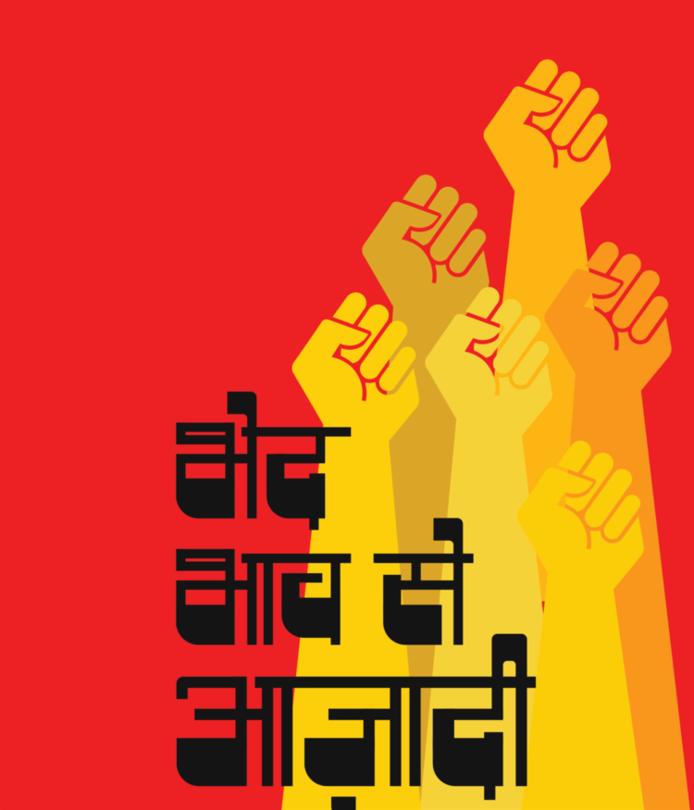Center for Global India brings Princeton’s South Asian community together to discuss law, citizenship and dissent

On March 2 and 3, 2023, visiting scholars, practicing lawyers, and Princeton faculty and students convened to discuss a new Indian law that links citizenship with religious identity for the first time in the nation’s history.
“India is often celebrated as the world's largest democracy, but there cannot be democracy without dissent,” said Divya Cherian, assistant professor of history and co-organizer of “Law, Citizenship, and Dissent,” a series of roundtables. “In recent years, as many organizations around the world have observed, the space for dissent in India has shrunk.”
The event was part of the ongoing “Power, Inequality, Dissent” series, organized by Cherian and Harini Kumar, postdoctoral research associate in the Department of History and the M.S. Chadha Center for Global India (CGI). The event was sponsored by the CGI, the Program in South Asian Studies, the Mamdouha S. Bobst Center for Peace and Justice and the University Center for Human Values.
“The point of the series is to create a space for reflection at a time when such spaces are shrinking because of the various ways institutions have been silenced,” Kumar said. “These discussions point us towards understanding how the social fabric of Indian society is undergoing changes and importantly, how it is being remade through the law.”
India’s Citizenship Amendment Act (CAA), amended by Prime Minister Narendra Modi’s Bharatiya Janata Party (BJP) in late 2019, fast-tracks Indian citizenship for members of certain religious groups, including Hindus, Buddhists, Jains, Sikhs and Christians, who have come to the country from neighboring nations. The law does not offer these protections to Muslim migrants. When deployed along with the planned creation of a National Register of Citizens that introduces a high bar for the verification of claims to Indian citizenship, the CAA paves the way for decades of harassment and added persecution of the nation’s 200 million-strong Muslim minority. Indian Muslims already face discrimination in housing, employment and education. Opposition to the CAA has been met with repression from the state, which has arrested peaceful protesters on terrorism charges, detained journalists and demolished the homes of Muslims who dissent.
“The shift happening now is a remolding of the law rather than a suspension of rights,” said Shahrukh Alam, a Supreme Court of India advocate who headlined the first panel, “Reconfiguring Citizenship in Contemporary India.” The state, she argued, is reshaping the law through language used in legal arguments and redefining political mobilization and dissent as attacks on the sovereignty and integrity of the nation.
Farrah Ahmed, professor at the Melbourne Law School and Laurance S. Rockefeller Visiting Faculty Fellow at Princeton, noted in her response that the Indian government has invoked secularism in defense of the CAA. “How can an exclusionary citizenship on the basis of religion be secular?” she asked. The CAA, she argued, is just an instance of a larger strategy to reconfigure constitutional values like secularism to suit the state’s purposes. “We need to pay attention to the ethno-nationalist features of the version of secularism that the government is now promoting,” she said.
The government’s handling of protests against the CAA is enabled by recent amendments to anti-terrorism laws, which have become more draconian. In the second panel, “Terror Trials: Life and Law in Delhi's Courts” author Mayur Suresh, senior lecturer in Law at SOAS-University of London, described how defendants charged under anti-terrorism laws advocate for themselves, share tactics and learn the intricacies of the law to strengthen their cases over years, or even decades, in a legal system bent against them.
“The moment the state speaks in law or on paper, you can turn that discourse against those who utter it,” he said. “I want to show how these mundane rules or interpretations of the law are an avenue for a human voice to emerge.”
The BJP’s Hindutva ideology — a Hindu nationalist political movement — reaches far beyond India’s borders. Just 20 miles from Princeton, the town of Edison, New Jersey has one of the highest concentrations of South Asian immigrants in the United States. Incidents of anti-Muslim imagery and harassment, such as a piece of bulldozer-like equipment symbolizing BJP violence in an Indian independence parade last summer, have intensified in the region since the CAA was enacted.
“There was a deafening silence among people I know in South Asian and Indian circles in the U.S.” in response to anti-Mulsim violence and oppression in India, said Sadaf Jaffer, New Jersey assemblywoman for the 116th district and a Princeton researcher and lecturer, at the panel “Hate Symbols and Challenges to Solidarity in the U.S. and India” on day two.
With screenshots of social media posts attacking her for her background, examples of political smear campaigns, and photo evidence of anti-Muslim harassment and pro-BJP propaganda, Jaffer showed how the rise of Hindutva in India has divided communities in the South Asian diaspora. “It ultimately comes down to whose humanity we value,” she said. “As long as Muslim lives don’t matter, people will continue to just brush it off.”
Neeti Nair, associate professor of history at the University of Virginia, provided crucial historical context during the final session, “Hurt Sentiments: Secularism and Belonging in South Asia.” Her book of the same name examines how language intended to entrench secularism in India’s constitution has been weaponized by majority religious groups since Partition divided the subcontinent in 1947.
“Who belongs where has always been essential to secularism in South Asia,” Nair said. “It seems like we’re back to a very polarized discourse on boycotting Muslims and questioning their belonging to India”
